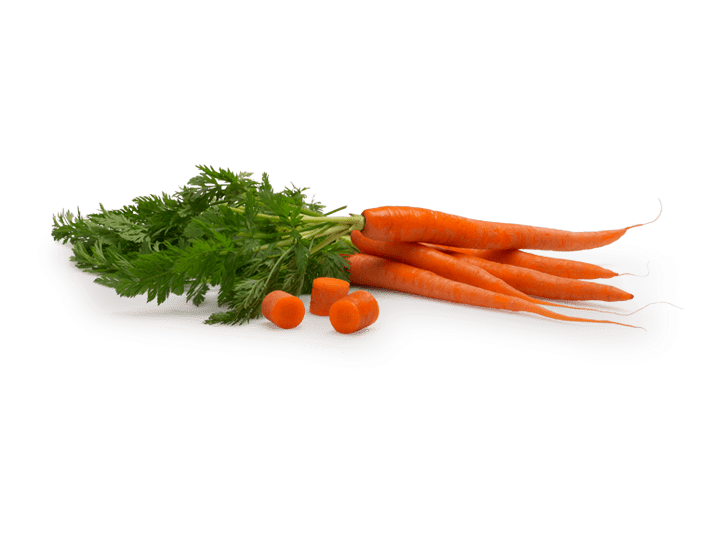Carrots

Nutrition
Good Source of Vitamin K, which supports normal blood clotting.
How do you pick carrots?
Select carrots that are straight, firm and have a smooth exterior. Color should be bright orange without cracks or dry spots. If tops are attached, they should be fresh-looking and green. Avoid soft or wilted carrots.
How do you prepare carrots?
Wash, trim and peel whole carrots before using. If using peeled mini carrots or pre-cut sticks, these products are ready-to-eat and do not need to be washed.
How do you store carrots?
Cut off carrot tops, if attached, before storing. Store unwashed carrots in plastic bags in refrigerator vegetable crisper or drawer away from fruits up to 2 weeks.
Get Some Fresh Inspiration


